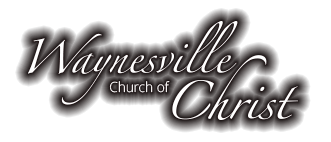The church of Christ (Romans 16-10) originated in Jerusalem on the day of Pentecost shortly after the death of our Lord and Savior. Depending on the calendar one uses, the year was approximately 33 A.D. We will study more about this in a later lesson.
Please see Matthew 16:13-19. To summarize this text, Jesus is in the coast of Caesarea Philippi with the disciples (v 13). He asks them “Whom do men say that I the Son of Man am?” Some answered, “John the Baptist, Elijah, Jeremiah, or one of the prophets.” Then Jesus asked, “But whom say ye that I am?” (v 15). Peter, the apostle answered: “You are Christ, the Son of the living God” (v 16). Jesus blessed Simon Barjona (Peter) telling him that flesh and blood had not revealed it unto him, but rather His Father in heaven (v 17).
Jesus then said to Peter, “thou art Peter, and upon this rock I will build my Church.” (v18) “My Church” is singular possessive pronoun (one – please reference last lesson). In verse 19 Jesus tells Peter that he will give him the “keys of the kingdom.” The kingdom refers to “the church”. In Mark 9:1, Jesus tells the apostles that some of them standing there would not taste death until they saw the “kingdom come with power.” That kingdom came (the church was established) on Pentecost when Peter preached the first gospel sermon in Acts chapter 2. Acts 2:2-4 show the kingdom coming with power.
The church was not founded on the apostle Peter. The name Peter means “rock” (petros) in the Greek. Petros means ‘a detached stone’, or ‘a stone that might be thrown or easily moved’. But when Jesus said to Peter “upon this rock I will build my church” the Lord isn’t referring to Peter at all. The word rock here is from the Greek “petra” which denotes ‘a mass of rock’. Jesus is simply referring metaphorically to Himself and to Peter’s testimony concerning Him being the Christ, the Son of the living God.
